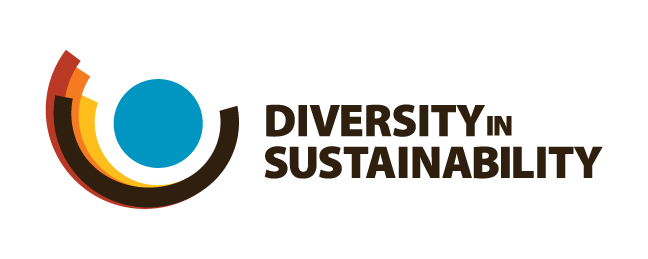Ross Estela: Discussing Poetry and Social Change
Who are you?
My name is Rosakebia (Ross) Estela. I am a carer for my 67-year-old mother, and I identify as a transgender Peruvian poet. In addition to my poetic pursuits, I have a background in biology, creative industries, and education. I consider myself an entrepreneur at heart and a passionate advocate for human rights. I was born in Chiclayo, a city in the northern region of Peru.
How did you get into the Sustainability sector?
I entered the sustainability sector driven by a deep sense of social justice. I believe that as professionals, we have the power to go beyond mere data storytelling and instead, truly understand and communicate the real needs and aspirations of people and be empathetic with the planet.
Since 2017, I have joined high impact projects and worked with multicultural and interdisciplinary teams. My work is at the intersection of social innovation, social change work and activism.
I was the only Latin American and second Peruvian since 2006 to join the European Parliament's Sakharov Fellowship (June, 2022) where I had the opportunity to raise social and environmental challenges from Latin America to the European Parliament including the lack of drinkable water in the North of Peru. I was selected as ECA Professional Fellow of the U.S. Department of State’s Bureau of Exchange and Cultural Affairs & International Center for Journalists (Fall cohort, 2021); European Parliament's Sakharov Fellow, Unit of Human Rights Actions (2022). Selected as Youth Delegate in the round table for Digital Transformation organized by the OAS in the First Youth Meeting of the Americas held on October 3rd and 4th 2022 in Lima, Peru. Selected participant to join the closed roundtable about Digital Inclusion for the Americas in the Cities Summit of the Americas 2023 in Denver, Colorado. Guest speaker at Just Transformation Forum organized by EU-LAC Foundation. May 16-17th 2023.
You are also a poet and storyteller and a biologist. Why is poetry important when it comes to social change?
As an artivist - an artist and activist - I deeply understand the importance of poetry in driving social change. Poetry possesses unique qualities that make it a powerful tool in the pursuit of a more just and equitable society.
Poetry, as an art form, is an essential tool for social change. Through critical reflection, anticipation of consequences, cultural critique, imagination, empathy, and motivation, poetry inspires us to challenge the status quo, envision a better future, and take meaningful action.
Where can we find your poetry?
I have been published my poetry in social media. Instagram: @rosakebiaestelamendoza, Facebook: Rosakebia Estela Mendoza.
The bird keeper or Life’s harsh art has been published in “I Sing, Therefore I Am vol.3”. First published as an e-book in 2023 by Oxford Brookes Poetry Centre, Oxford Brookes University OX3 0BP. This poetry collection reflects about the invisible social care work.
https://carerspoetry.org
What issues are you most concerned about in sustainability?
I am personally interested in social equity and justice, as I believe they are vital components of sustainability. In order to create a future that benefits everyone in society, it is imperative to address issues such as poverty, inequality, gender disparities, and social exclusion. By actively working towards resolving these challenges, we can establish a sustainable society that is inclusive and fair.
Furthermore, I am intrigued by the interconnectedness of sustainability and digital transformation. These two concepts have the potential to synergize and mutually reinforce each other. While digital transformation offers numerous opportunities for promoting sustainability, it is essential to approach it with caution and consideration. Potential challenges and risks, such as e-waste, energy consumption associated with digital infrastructure, and the digital divide, must be taken into account.
To ensure responsible and inclusive digital solutions, it is crucial to make the benefits of digital transformation accessible to all members of society while minimizing negative environmental impacts. This requires implementing strategies that prioritize equity, sustainability, and equal distribution of resources. By doing so, we can harness the power of digital transformation to drive positive change and create a more sustainable and just world.
What is your advice for people who want to get into the sustainability sector? / What advice would you give to your younger self?
For those interested in entering the sustainability sector, my advice is to envision future possibilities and keep a notebook to capture ideas. Throughout my own journey, it took over eleven years of hard work to prepare myself for this field. I embraced every career shift, learning new skills along the way. Despite facing challenges, such as limited resources and the difficulty of holistic thinking in developing countries like Peru, I have always navigated paths that combine the creative power of science, arts, and technology since childhood. To succeed in the sustainability sector, it's important to cultivate a holistic mindset, expand knowledge, develop a diverse skill set, gain practical experience, network and collaborate, embrace innovation and technology, and be proactive in making a positive impact. If I could offer advice to my younger self, I would emphasize embracing my unique path, being resourceful, documenting ideas and visions, embracing lifelong learning, fostering resilience, seeking mentors and collaborators, and staying optimistic and inspired. The journey toward sustainability is a continuous process of growth and learning, and by staying true to our values and remaining open to new opportunities, we can contribute to creating a more sustainable future.
Are there any quotes/philosophies that you try to live your life by?
Embrace your uniqueness and diversity, and uphold strong values and ethics as guiding principles in your personal and professional life.
Are you optimistic or pessimistic about the future?
My view of the future embraces both optimism and pessimism, acknowledging the complexities of our world while remaining open to the possibilities of positive change.


